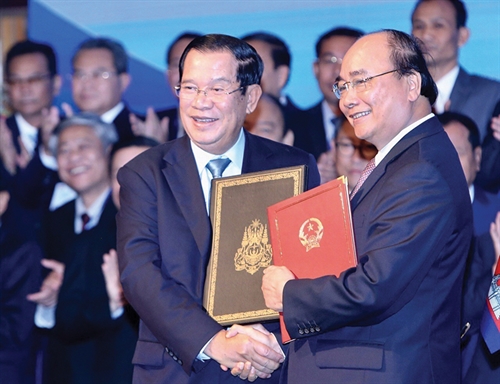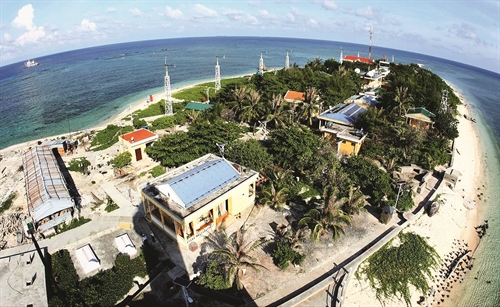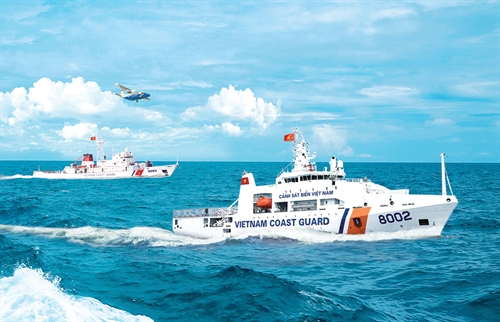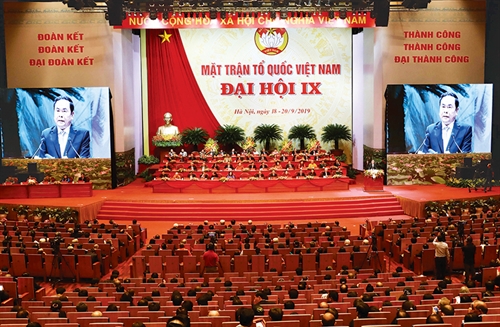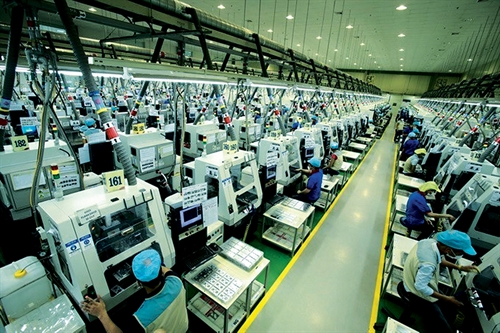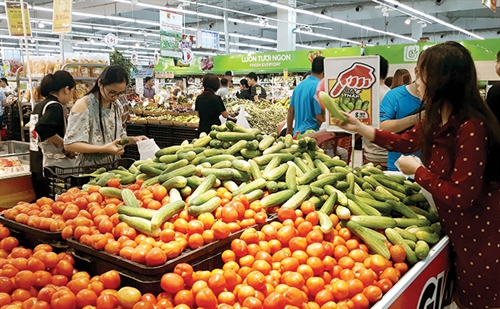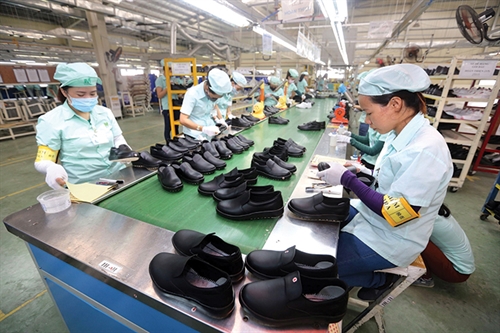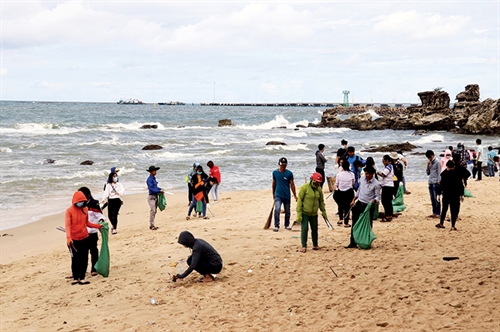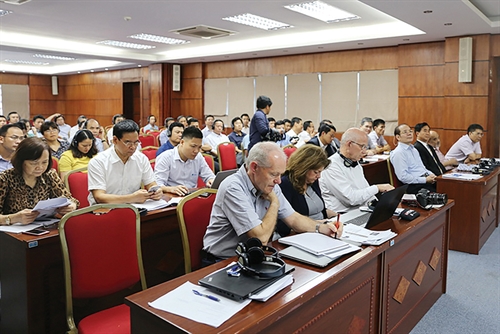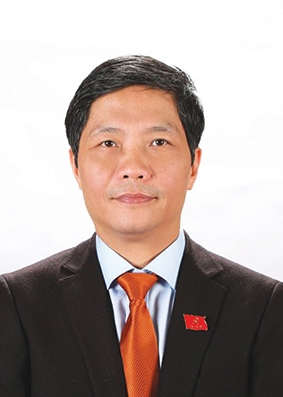 |
Minister of Industry and Trade Tran Tuan Anh talks to Vietnam News Agency about ASEAN-Vietnam cooperation and the roles of Vietnam as ASEAN Chairman in 2020.
How do you assess cooperation between ASEAN and Vietnam, especially in terms of economics, one of three pillars of the bilateral cooperation?
Vietnam became an ASEAN member in 1995 after the country had its embargo lifted and commenced its comprehensive and extensive reform.
Regarding global integration, Vietnam’s participation in border trade, ASEAN and ASEAN Free Trade Area (AFTA) in 1996 were the first steps to realize the resolution of the seventh Party Congress which looks towards external relation strategies on the basis of multilateralism, diversification and considers economic cooperation as an important foundation.
Vietnam’s development serves as a foundation for integration strategies of external relations and economy in later periods.
With the participation in ASEAN and AFTA as well as pledges Vietnam has committed as a bloc’s member, Vietnam is aware that it will become the center of the dynamic economy and trade, not only of Asia but also of Asia-Pacific region and the world.
With important political location of Southeast Asian countries and ASEAN member states, Vietnam will surely bring into play its power and voice on the basis of agreement, solidarity and unity.
China, the US, Russia, Japan, Republic of Korea (RoK), Australia, New Zealand and the EU all have close relationships and very strong interactions with ASEAN countries.
During 24 years since Vietnam joined ASEAN and AFTA, Vietnam has grown up in terms of integration viewpoints and in realizing integration commitments.
It’s like a diploma, an important foundation to help Vietnam reach new heights.
ASEAN has become one of Vietnam’s leading trading partners in the world in all aspects including economy, trade and investment.
In 1996, when Vietnam joined AFTA, the country’s two-way trade turnover with other countries in the bloc was only some USD 5.9 billion. In 2018, this number increased by more than 9.5 times and reached about USD 56.3 billion.
Vietnam has increasingly led its roles within ASEAN in various fields including politics, trade and foreign investment. Vietnam also affirms its position as a very active and proactive member with an increasingly complete integration strategy and viewpoint of opening its door.
Vietnam so far has signed 16 free trade agreements (FTAs), proving that its capacity and influence are being upheld.
As we know, ASEAN has signed FTAs with China, India, Australia, New Zealand and the RoK.
Vietnam’s cooperation with ASEAN in all fields, which puts economy at the core, gives Vietnam a very important position in politics, external relations and economy.
In particular, Vietnam’s scale of imports and exports is two times larger than Gross Domestic Products (GDP), which clearly shows the country’s competitiveness in the international market with innovated and stable products.
The cooperation with ASEAN helps us draw experience, restructure national economy, renew our growth models along with building a state with rule of law and socialist-oriented market.
ASEAN Economic Community formed in December 2015 has demonstrated ASEAN shared vision and affirmed Vietnam’s active contribution to the common platform.
ASEAN Economic Community and ASEAN Vision 2025 will be basic orientations and imply key meanings to ensure that ASEAN is the center of Southeast Asia, East Asia, Asia-Pacific, helping Vietnam and ASEAN countries prosper and ensure regional peace, stability.
Could you elaborate the prioritized orientations of Vietnam and Ministry of Industry and Trade for ASEAN 2020?
Vietnam will become a non-permanent member of the UN Security Council next year. 2020 will be the last year of five-year tenure of the national Party Congress and mark the start of the 10-year socio-economic strategy. It will be such a meaningful year for Vietnam.
With the centralized and unified direction of the Government and Prime Minister, Vietnam has reached consensus on ASEAN 2020 theme: Cohesive and Responsive.
These two elements truly reflect the needs of Vietnam and ASEAN member states in the context of regional and global rapid changes.
Over the past 24 years, ASEAN’s cooperation mechanisms have found shortcomings and need to be adjusted to ensure that ASEAN remains a regional and global dynamic economic zone and is a vital organization, a driving force of progressive, cohesive and close growth.
Vietnam’s priorities in 2020 inherit orientations of ASEAN’s previous development period and also reflect regional and global development trends as well as demands of ASEAN with partners.
Vietnam will aim for new features that are changing rapidly and complicatedly, which requires quick response of ASEAN.
They are technology platforms like the Fourth Industrial Revolution, digital economy, innovation start-ups, e-commerce, and value chains in the region, in industry or of specific commodity groups in ASEAN.
Rising trade protectionism and unilateral trade policy is posing risks and challenges to the multilateral system based on the laws of Vietnam, the European Union, WTO and FTAs.
This creates barriers for free trade among economies, especially developing countries like Vietnam and ASEAN.
Tensions among world economic powers affect not only trade liberalization or trade protectionism, but also challenge the principles and survival of multilateral trade organizations like WTO.
In this rapidly changing and complicated context, as a chair of the bloc, Vietnam must act as a coordinator to uphold the responsive capacity.
Six FTAs ASEAN has signed with major partners have strong impacts on the global trade structure.
The Regional Comprehensive Economic Partnership that Vietnam and ASEAN countries are expected to sign with partners next year will bring about a new vista and a new structure of the region and the world.
A free trade area of which GDP accounts for nearly 40 percent of the world’s will have very strong impacts on globalization and free trade and prevent trade protectionism.
In these contexts, to reach the goals, Vietnam will select priorities which reflect ASEAN common vision, contribute to global trend and at the same time still stick to aims and purposes of ASEAN and FTA agreements.
Vietnam has made efforts to reach these targets.
Vietnam will propose 16 to 17 initiatives covering various fields for ASEAN Chairmanship 2020.-
